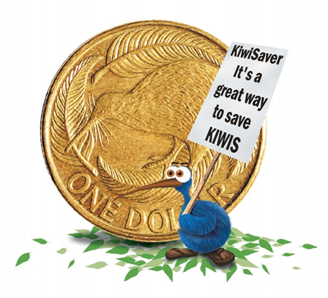The following article is taken from Good Returns – NZs Financial Adviser News Centre, published Tuesday 26th November 2019.
We feel it accurately reflects our ethos and believe it’s well worth reading.
The value of advice has been quantified in a new report produced by Russell Investments.
It shows that an adviser adds 5.2% to a client’s portfolio. The firm conducts this research in the United States and Australia, and has just completed a New Zealand version of the work.
Russell New Zealand managing director Alister Van Der Maas says New Zealand advisers add more value to their clients than their counterparts in other countries.
The report measures value add in three areas: Rebalancing, Getting it Wrong and Avoiding Behavioural mistakes.
It found most of the value add came from helping clients avoid “getting it wrong” (2.9%), averting behavioural mistakes (1.9%) and annual rebalancing (0.4%). There was also an intangible value in making the process of investing simpler.
The report said the value-added would be significantly more for clients who would not otherwise have had an investment portfolio, were it not for their financial adviser.
While annual rebalancing had the smallest impact, the report said that portfolios that were not rebalanced regularly could end up with significant, and unintended, risks. Rebalancing would add value but also reduce volatility by about 1%.
“A hypothetical 60/40 balanced portfolio launched in 2004 looks very different today, with an asset allocation more heavily weighted to growth assets and significantly more of the portfolio in New Zealand assets than at inception. As a result, this portfolio mix may no longer be appropriate for the investor and it may expose them to significant unintended risks. Knowing when and why to rebalance is key.
“This comes down to advisers having a thorough understanding of their respective client’s goals and risk tolerance as well as the implicit and explicit costs involved. The examples shown, illustrate the value that a disciplined rebalancing approach can add both in terms of risk reduction and return enhancement,” the report said.
Behavioural mistakes, the next biggest driver, were hard for independent investors to catch, the report said.
“Behavioural change begins with personal awareness of their investing behaviour and of the investment biases that may be causing their mistakes. Once clients are aware of these biases, the adviser can be that accountability partner to help them stay on course.”
Russell analysis in the US showed that the average equity investor’s inclination to chase past returns would have led to underperformance compared to the market.
“From December 2007 to December 2018, investors withdrew more money from US stock mutual funds than they put in. All the while, $100 invested in the Russell 3000 Index more than doubled in value. Those that chose to stay in cash during that period missed a cumulative return of more than 200%, based on the Russell 3000 Index.
“We believe an adviser’s ability to help clients stick to their long-term financial plan and skirt irrational, emotional decisions adds this value. It is perhaps the key reason why we are such strong proponents of financial advice,” the report said.
It was avoiding the cost of getting it wrong that added the most value.
“Investing without professional advice can be viewed as an effective way to lower the costs of investing, but this can be a short-sighted and ultimately costly view. For instance, the investor may not set an appropriate investment strategy for their needs, they may lack the skills or time to filter through the many investment options available or they may be tempted to chase performance and over-react to market events,” the report said.
Australian research by Deloitte showed that younger investors were more risk-averse than older counterparts.
“The role of an adviser in helping clients to determine the most appropriate investment strategy to meet their objectives should not be underestimated. Whether the client’s goal is to achieve long-term growth or preserve capital, developing an appropriate investment strategy based on individual risk tolerance, time horizon and investment goals is all important.
“In addition to developing appropriate asset allocations for their clients, many professional advisers also have the capability to build globally diversified multi-asset portfolios, typically using a combination of directly held securities and managed funds.
“Advisers also provide important access to funds and strategies a client may not be aware of or able to access themselves. These include the right active strategies perhaps, complemented with passive strategies like ETFs to keep portfolio costs in check, all while ensuring market opportunities are not being missed,” the report said.
Advisers should not be shy about promoting their value in making clients’ lives easier, the report said.
“Most investors have never taken basic classes in school to learn about money management, let alone had formal training. There is great value in teaching investors how to make the complexities of financial planning, goal-based advice and multi-asset investing strategies simple enough that they will actually want to be a part of helping you help them. In turn, this can create trust, simplicity, candour and confidence in the value advisers deliver.”









